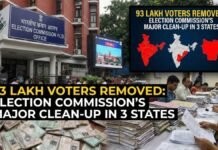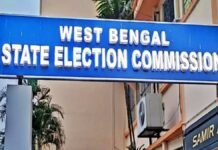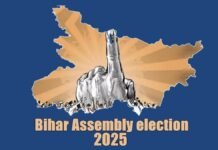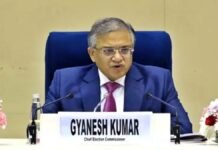
New Delhi: The 17th Lok Sabha, the lower house of the Parliament of India, is nearing the end of its five-year term on 16 June 2024. This means that the country will soon witness another round of general elections to choose the next government. The Election Commission of India (ECI), the constitutional body responsible for conducting free and fair elections, has already started its preparations for the upcoming polls.
However, the exact dates of the Lok Sabha elections in 2024 are still unknown. Recently, a letter from the ECI went viral on social media, suggesting that the elections would start on 16 April 2024. This sparked a lot of speculation and curiosity among the public. But the ECI clarified that this was not the final date, but only a tentative one for the officials to plan and arrange the necessary logistics at the district level.
So, how does the ECI decide the dates of the Lok Sabha elections? What are the factors that influence its decision? And when can we expect the elections to be held? Here are some answers to these questions.
How the ECI decides the dates of the Lok Sabha elections
According to Article 324 of the Indian Constitution, the ECI has the power and duty to organize and supervise the elections to the Lok Sabha, the state legislative assemblies, and the Rajya Sabha (the upper house of the Parliament). The ECI has to ensure that the elections are conducted within the time limit and standards set by the Constitution and the law.
The ECI has the final authority to decide the dates of the Lok Sabha elections, which are usually held in multiple phases across the country. The ECI has to consider several factors while deciding the dates, such as:
- The constitutional mandate: The ECI has to ensure that the elections are completed before the expiry of the term of the existing Lok Sabha, which is five years from the date of its first sitting. The ECI also has to ensure that the new Lok Sabha is constituted within six months of the dissolution of the previous one.
- The climatic conditions: The ECI has to avoid extreme weather conditions, such as heat, rain, snow, or fog, that may affect the voter turnout and the smooth conduct of the polls. The ECI also has to take into account the seasonal variations in different regions of the country, such as the monsoon, the winter, or the summer.
- The socio-cultural factors: The ECI has to respect the religious and cultural sentiments of the voters and avoid any clash with the major festivals, holidays, or events that may affect the participation or the mood of the electorate. The ECI also has to ensure that the elections do not coincide with the dates of important examinations, such as the board exams or the entrance tests, that may affect the students and the teachers.
- The security and administrative factors: The ECI has to ensure the availability and deployment of adequate security forces, such as the central armed police forces, the state police, and the paramilitary forces, to maintain law and order and prevent any violence or disruption during the polls. The ECI also has to coordinate with the state and central governments, the district administrations, the railways, the postal department, and other agencies to arrange the necessary infrastructure and facilities, such as polling stations, electronic voting machines, transport, and communication.
When the Lok Sabha elections 2024 may be held
The ECI has not yet announced the dates of the Lok Sabha elections 2024. However, based on the past trends and the current scenario, we can make some educated guesses. Here are some points to consider:
- The last four Lok Sabha elections were held in the months of April and May, which are generally considered suitable for polling in most parts of the country. The Lok Sabha elections 2019 were held from 11 April to 19 May, the Lok Sabha elections 2014 were held from 7 April to 12 May, the Lok Sabha elections 2009 were held from 16 April to 13 May, and the Lok Sabha elections 2004 were held from 20 April to 10 May.
- The ECI usually announces the dates of the Lok Sabha elections about two months before the first phase of polling, after consulting with the stakeholders and assessing the ground situation. For instance, the ECI announced the dates of the Lok Sabha Elections 2019 on 10 March 2019, the Lok Sabha Elections 2014 on 5 March 2014, the Lok Sabha Elections 2009 on 2 March 2009, and the Lok Sabha Elections 2004 on 29 February 2004.
- The ECI usually conducts the Lok Sabha elections in five to seven phases, depending on the size and diversity of the country, the security and administrative challenges, and the availability of resources. For example, the Lok Sabha elections 2019 were held in seven phases, the Lok Sabha elections 2014 were held in nine phases, the Lok Sabha elections 2009 were held in five phases, and the Lok Sabha elections 2004 were held in four phases.

Based on these points, we can expect that the Lok Sabha elections 2024 may be held from mid-April to mid-May, with the dates being announced in early March. The elections may be held in five to seven phases, covering all the 543 constituencies of the Lok Sabha. However, these are only estimates and the final decision rests with the ECI, which may change the dates or the phases depending on the prevailing circumstances.




















































